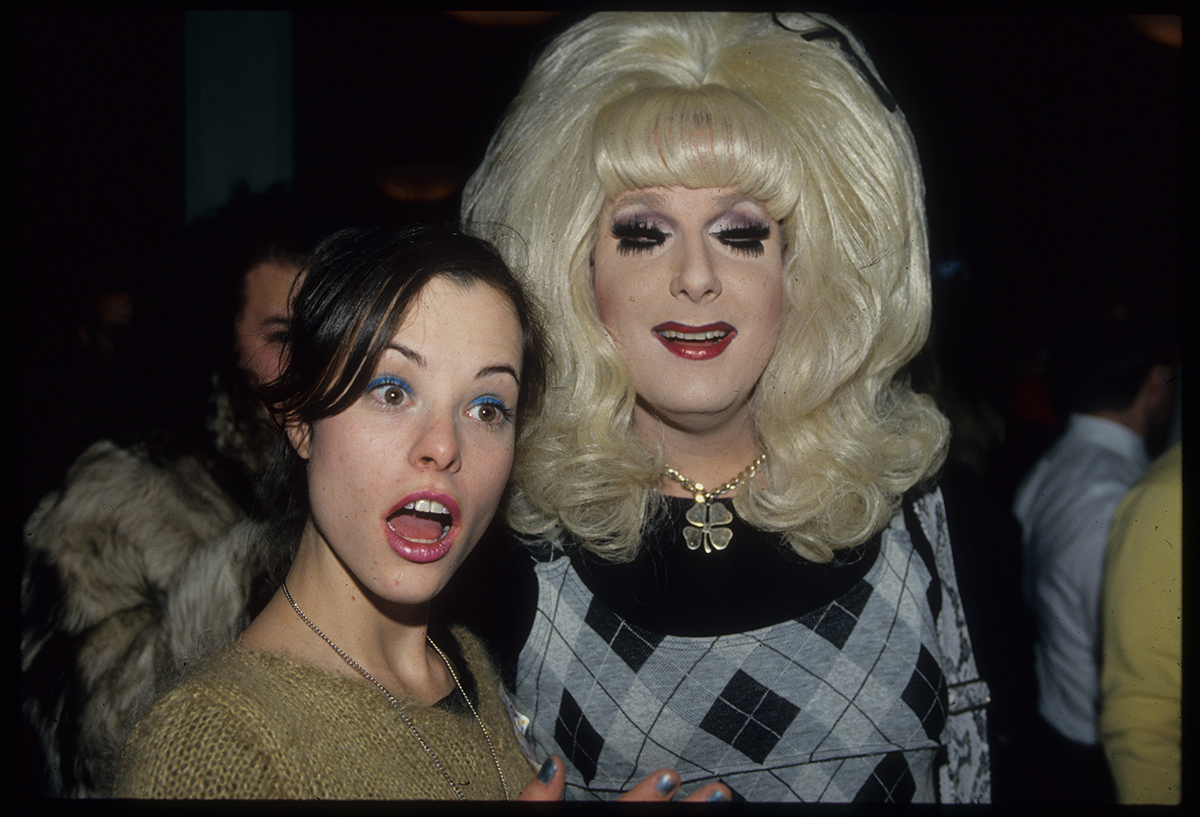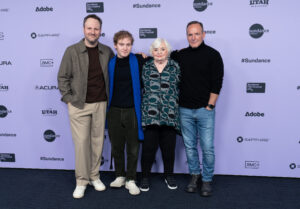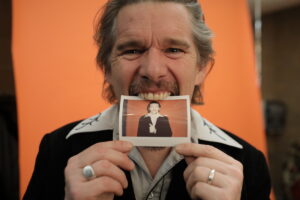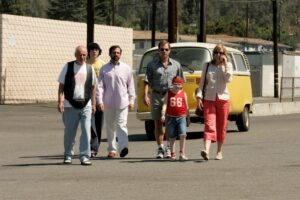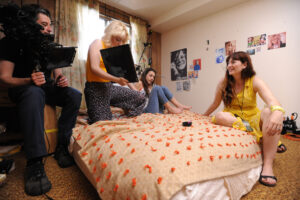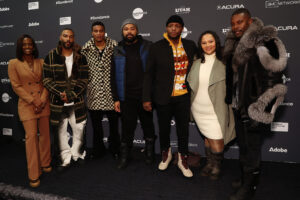Parker Posey and Lady Bunny at the 1995 Sundance Film Festival for their film “Party Girl.” Photo by Randall Michelson
Here at the Sundance Institute, we talk a lot about film. Whether it’s helping co-workers figure out what to watch this weekend or feeling positively ancient when we hear that a movie from our youth is celebrating a big anniversary, we’ve got thoughts, feelings, and recommendations for indie film lovers ready to go. Welcome to our regular series where Sundance Institute employees bring our most passionate hot takes about independent cinema to you. This is Personnel Thoughts.
It seems like a new day is dawning within the world of entertainment. A fresh generation is waking up to the power and the brilliance of the one and only Parker Posey. Thanks to the most recent season of (fellow Sundance Institute mainstay) Mike White’s mega-hit series The White Lotus, millions have been enraptured by Posey’s lifelong charms — her sharp glances, her melodic accent work, her unmatched comedic timing. With every “Piper noooo!” or “Tsunami?!” Parker’s turn as Victoria, the Ratliff matriarch, has been cementing for many new cinefiles what we have known for decades — that she is an absolute icon.
Dubbed the “Queen of the Indies” by Time in 1997, Posey has appeared in 17 Sundance Institute and Festival–supported films over her illustrious 30+ year career. Whenever you see her face pop up on screen, you know you’re in for a treat.
In honor of this season of The White Lotus coming to a close this weekend — and to keep all of our wildest theories at bay for a moment — we’re diving into the queen’s filmography and reminiscing about our favorite Posey roles. From scene-stealing bit parts to movie star leading lady turns, here are the characters and iconic line reads that we’ll never forget.
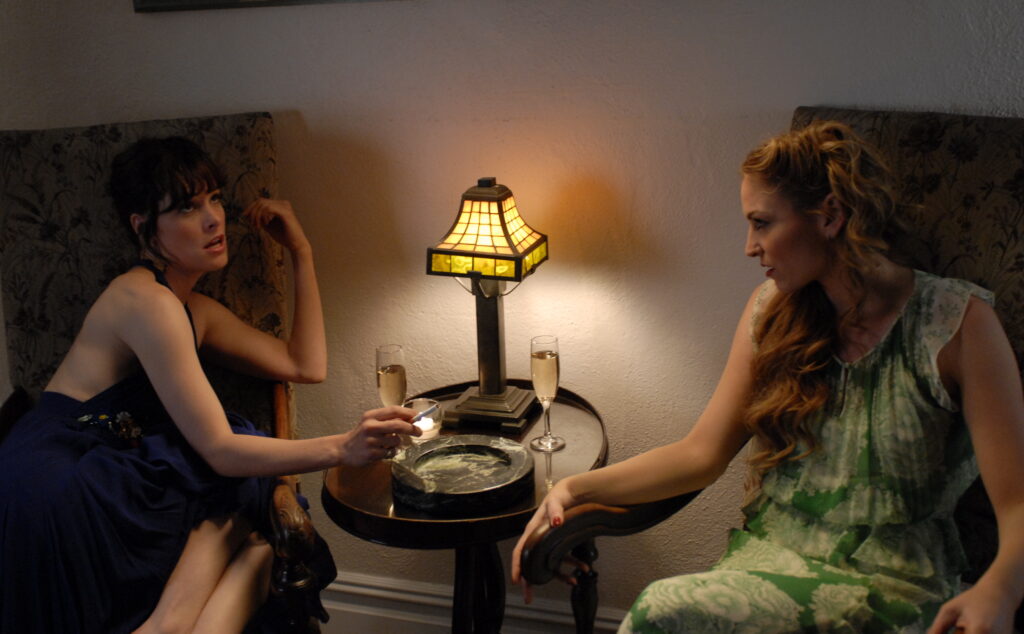
Nora, Broken English (2007 Sundance Film Festival)
In the late 2000s, I was deep into my single-girl sadness. I couldn’t seem to connect with anyone romantically — and I desperately wanted to. I wanted someone to know, see, and adore me. Instead, the trials of dating hit heavily. I was ghosted, taken for granted, and kept a secret. When my romantic ideals felt too hopeless, and I couldn’t be social, I’d curl up on my couch with a bottle of wine and watch a love story. At least I could live vicariously through others’ sweet vibes. In heavy rotation was Broken English, in which Parker Posey plays Nora, a 30-something living in New York who has terrible luck with men until she meets Julian (Melvil Poupaud), a charming French man with whom she has a whirlwind romance. I’d adored Posey’s dry humor from movies like Dazed and Confused, Party Girl, and Best in Show, but this role felt different. She was incredibly vulnerable, and I truly saw myself in it.
I related to feeling like I had to force smiles, was afraid to reveal the real me for fear of rejection, and was alone because something was wrong with me. I also identified with feeling so defeated that it kept me from embracing new experiences. But I wasn’t so broken that I wouldn’t eventually try again. And neither was Nora. There are moments with Julian that soften her, and though they feel too good to be true, she accepts them. This film made me fall harder for Posey and develop a deeper appreciation for her range. It also made me want to keep trying to connect with people, which was a gift for a jaded romantic trying to remain optimistic. — Jessica Herndon, Brand and Editorial Copywriter
Gail, Thelma (2024 Sundance Film Festival)
Parker Posey is at her very best when playing neurotic and her role in Thelma is no different. As June Squibb’s daughter and Fred Hechinger’s mother, she expertly plays someone who needs to take care of two family members in different generations while being at a loss of knowing what to do for them — and she’s a therapist!
One of the best moments of the film is when Posey thinks her son, Danny, was arrested and she frantically runs home from work. I’ve loved seeing her play mothers, especially one who’s worried about whether or not her son gets a job and asking WHERE DID HER MOTHER GO?! — Diana Verde, Marketing Manager
Margaret, Clockwatchers (1997 Sundance Film Festival)
In Jill Sprecher’s Clockwatchers, Toni Collette (another Sundance Film Festival regular) plays Iris, our mild-mannered narrator who starts temp work at Global Credit. Iris may be the film’s main character, but Margaret, the temp who’s been at the office the longest, is the one with main character energy. Portrayed by none other than Parker Posey, Margaret is sarcastic and brassy, and she quickly befriends Iris and introduces her to the two other temps, Paula and Jane.
Though slightly surreal in its portrait of mundane office life, so much of Clockwatchers is relatable to anyone whose career has included time in a cubicle.
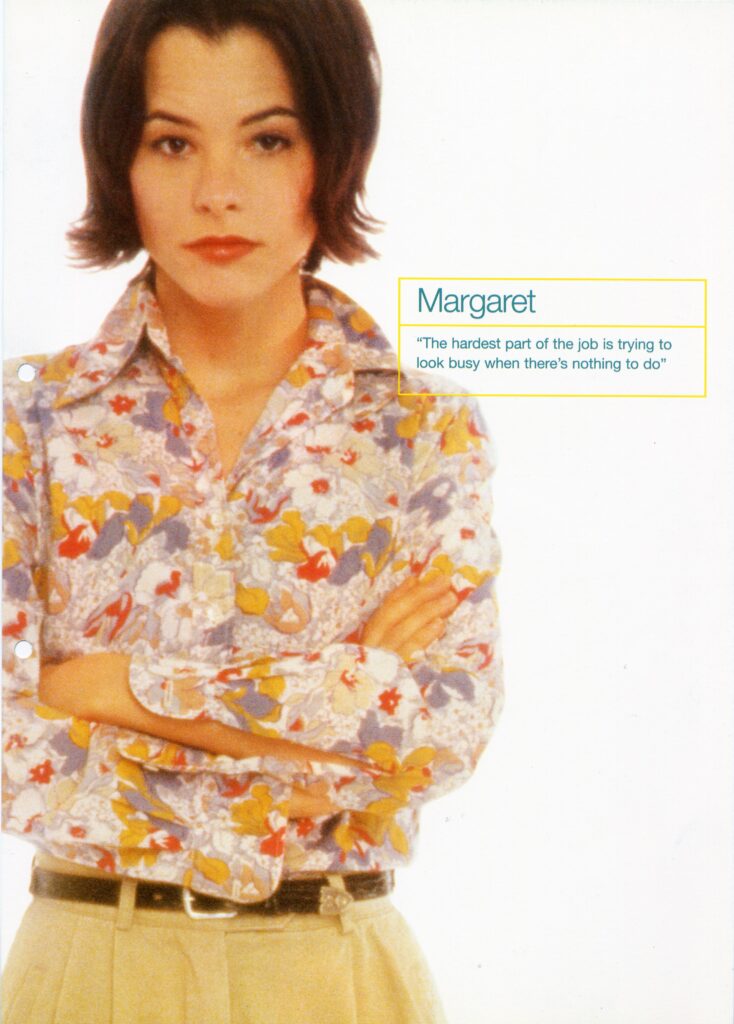
Who among us hasn’t felt suspended in the liminal spaces that seem to permeate corporate environments? We reintroduce ourselves to those who’ve forgotten our names, we wait on indefinite holds during phone calls, we end up existing in the gaps between minutes as we watch the hands on the clock crawl toward EOD. But most relatable to me when I first saw the film were the characters of Iris and Margaret, two sides of one coin that was all too familiar to my younger self. Iris, when we first meet her, was whom I felt like most of the time — timid, withdrawn, self-effacing. But Margaret, even with all her vices, was the person I wished I could be — fearless, a bit mischievous, outspoken to a fault. And Posey interprets Jill and Karen Sprecher’s excellent script with a nuance one might not expect from what appears to be a workplace comedy.
Sure, Margaret might smoke cigarettes in the restroom and play pranks on the guy who safeguards the office’s supply of pencils and staples. But Margaret’s also the person who can predict everyone’s next move. She’s the friend who brings Iris out of her shell and tries to hold the group together when suspicion falls on the four temps after various items go missing around the office. Margaret is shaped by a unique charisma that Posey brought to the 1990s independent film scene in droves. I want to follow Margaret into battle. — Lucy Spicer, Associate Editorial Manager
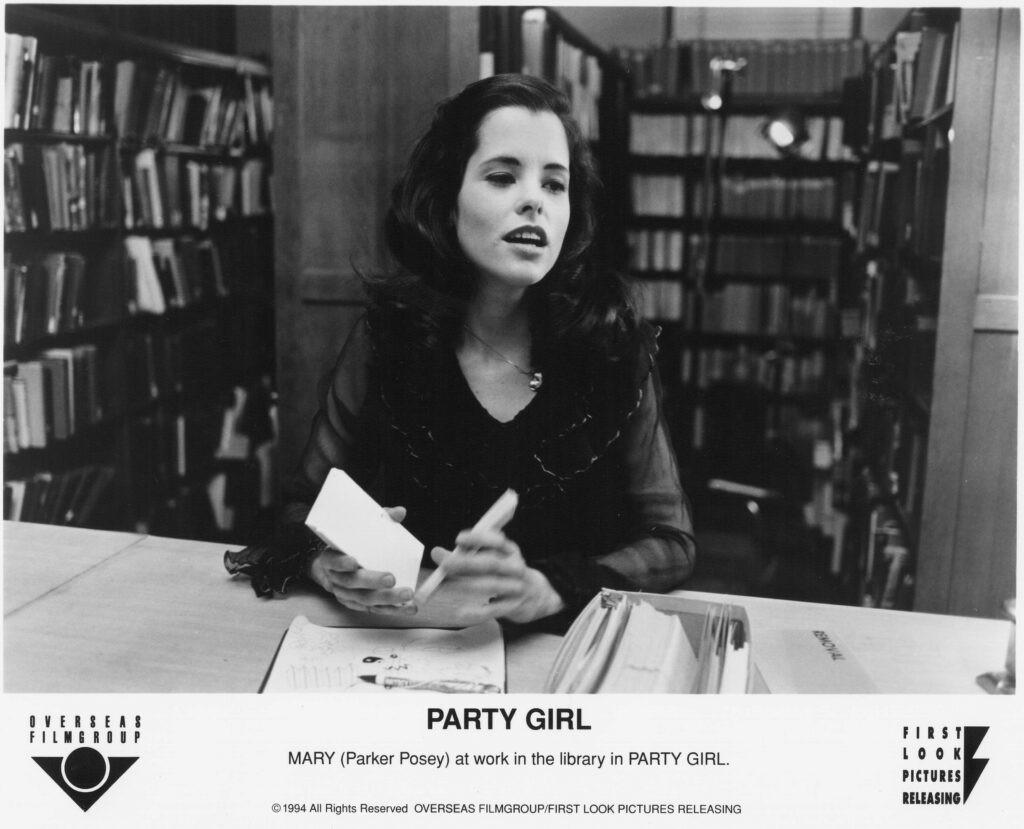
Mary, Party Girl (1995 Sundance Film Festival)
Growing up as a daughter of two librarians with the Dewey Decimal system hardwired into my brain and a penchant for sneaking out in high school to raves, Party Girl was a dead hit in the Venn diagram center of my heart.
In this film Posey perfectly toes the line of Mary, an aspiring librarian by day and New York City club scenester by night, seamlessly switching between doeish and savage. Her iconic elocution of “NA-TA-SHA!!” in the vogueing scene at the top of the film, only further solidified my love as a dedicated Posey devotee.
Her lead role in Party Girl followed on the heels of her break-out role as Darla, the bullying senior from Richard Linklater’s 1993 soon-to-become cult classic, Dazed and Confused. Her vicious delivery of “Wipe the face off your head, bitch”, destroyed. This uncanny ability to take a sharp piece of writing and enmesh a character into it was now clearly no accident. This venerable bad-ass was here to slay. — Kristina Mueller, Creative Director
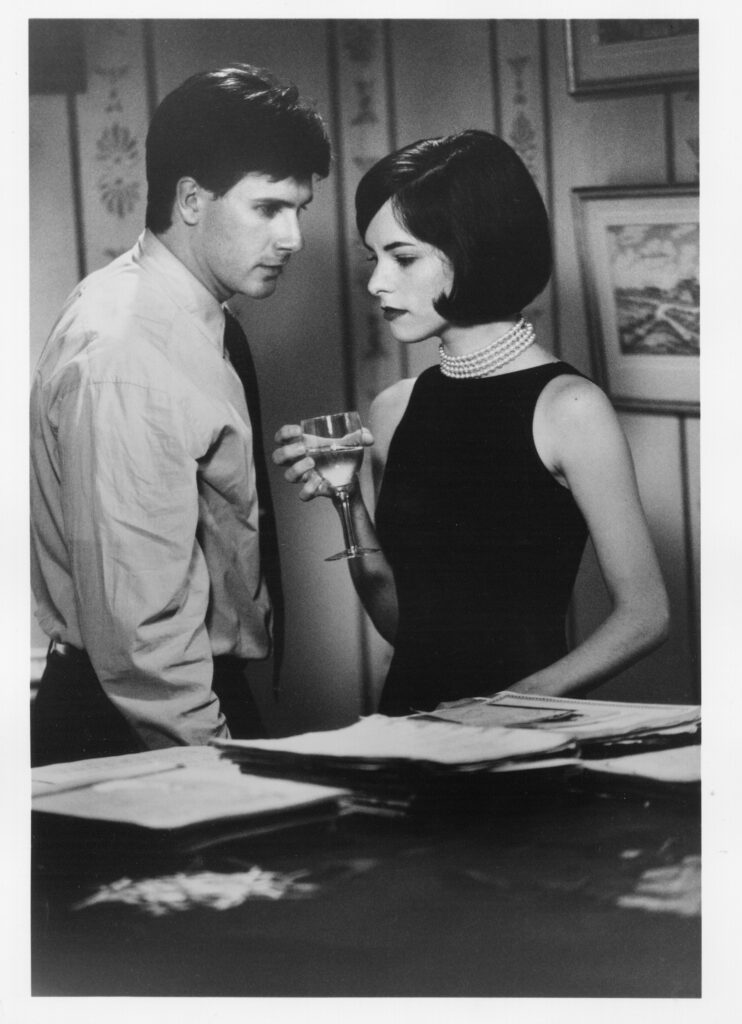
Jackie-O, The House of Yes (1997 Sundance Film Festival)
Eccentric wealthy family, grand yet sinister setting, beautiful woman desperately reliant on her pills for her sanity, sibling incest…
You know, maybe Parker Posey’s pitch-perfect, lived-in White Lotus performance is in part due to the fact that she’s been around this type of tangled and disturbing scenario before. Not only is she familiar, she won the Special Jury Prize for Acting at the 1997 Sundance Film Festival for her starring role in a similarly twisted tale.
In Mark Waters’ cult classic The House of Yes, Posey stuns as a woman on the edge.
Jackie-O is one of three children in the affluent Pascal family and she’s unhealthily obsessed with two things: her twin brother Marty and the John F. Kennedy assassination. When Marty comes home for Thanksgiving dinner with his fiancée, the drama and jealousy get turned up to 11. Jackie-O is rude, sharp, and unbelievably snobby.
Hurling out lines like “Were you poor? Did you eat chicken pot pie?” and “Pennsylvania’s just this state that’s in your way when you’re trying to get someplace else.” would be downright upsetting if they weren’t delivered with such conviction and smarm. I’d bet even as you were reading those you could hear Posey’s voice. She’s embedded in these lines — and in every line she’s ever uttered on screen.
Even with her delusions and, spoiler alert, the murder she commits, you can’t help but be charmed by Jackie-O! She’s effervescent and smart, she’s poised and silly, she’s over the top, but you are desperate to be in her orbit.
“Oh please, if everyone around here is going to start telling the truth, I’m going to bed.”
Jackie-O said it, but damned if I can’t picture it coming out of Victoria Ratliff’s mouth too. — Bailey Pennick, Associate Editorial Director




